Humanities & Social Sciences
Single Mothers Increasing: Mak Researchers Call for Friendly Policies on Parenting to Improve Children Welfare
Published
2 years agoon
By
Jane Anyango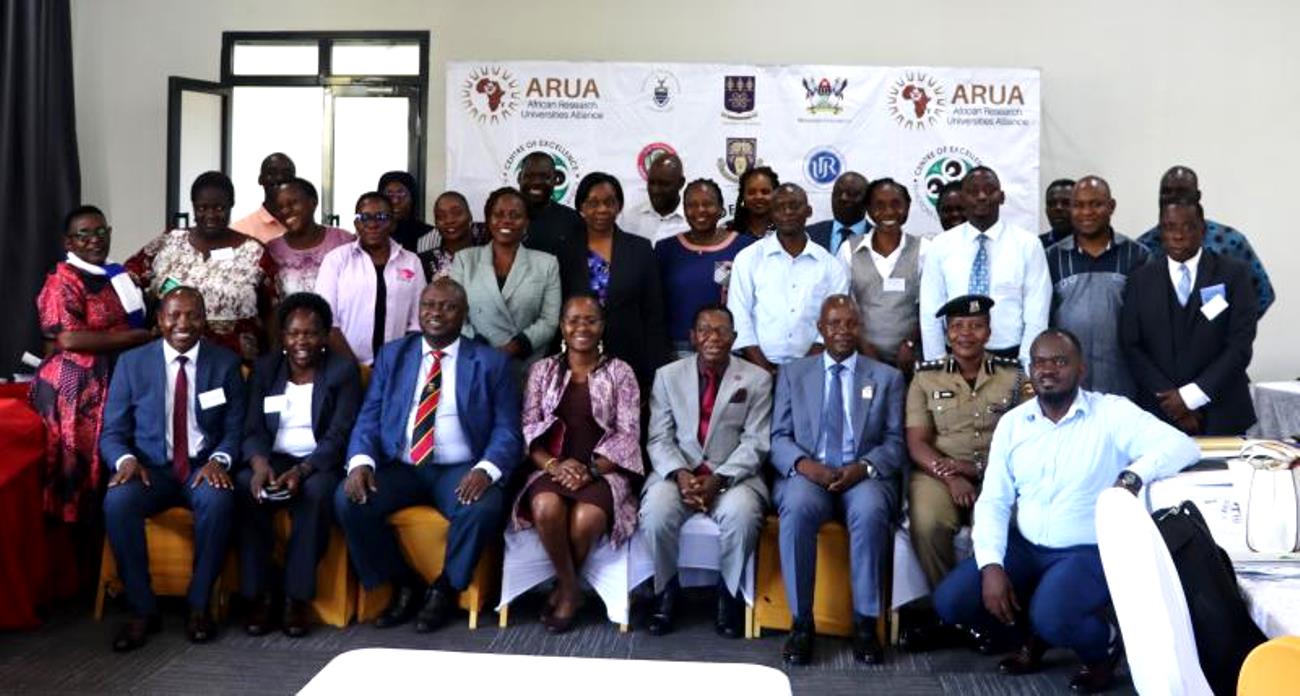
Researchers from Makerere University’s African Research Universities Alliance Centre of Excellence in Notions of Identity in Africa (ARUA CoE) have found that single motherhood is a phenomenon that has been documented since the colonial era but, it is increasing in Uganda. Research indicates that neoliberal and capitalist ideals, indigenous and western cultures have exacerbated the problem. Researchers are now calling on government to enact friendly policies on parenting to improve children welfare in Uganda. Makerere dons also want government to address issues of unpaid care economy. On the other hand, stakeholders have asked the university to introduce a graduate program on parenting to address capacity gaps in dealing with issues relating to parenting and children’s’ welfare.
The call was made during the policy dialogue organized by the ARUA CoE aimed at providing a platform for Early and Senior Careers researchers to share their research findings with policy makers and stakeholders and be able to obtain feedback. The workshop was also to create synergies between the different implementing institutions driving advocacy and policy change at national and local levels as well as identifying key policy and regulatory frameworks for improved parenting.
The Centre Director, Assoc. Prof. Sarah Ssali said, the centre was established to deepen scholarship on identities in Africa, how they change and how the changes are impacting on life and development in Africa. As first phase Prof. Ssali said, Uganda, Kenya, South Africa, Nigeria and Rwanda got a capacity building grant financed by the United Kingdom Research and Innovations (UKRI) and focused on how parenting identity is changing.
“And in particular, we wanted to find out how is fatherhood and motherhood changing, why is it changing and how these changes impact on children’s welfare. So the whole aspect of capacity building grant was to strengthen the capacity to research and engage policy makers in studying parenting, fatherhood and motherhood and children’s wellbeing on the African continent”, The Director said
“We have studied for three years, involved 21 early career researchers, given out 18 small grants, engaged 9 senior scholars and today, we are having a segment of disseminating the Uganda research findings to the policy makers.” Prof. Ssali added.
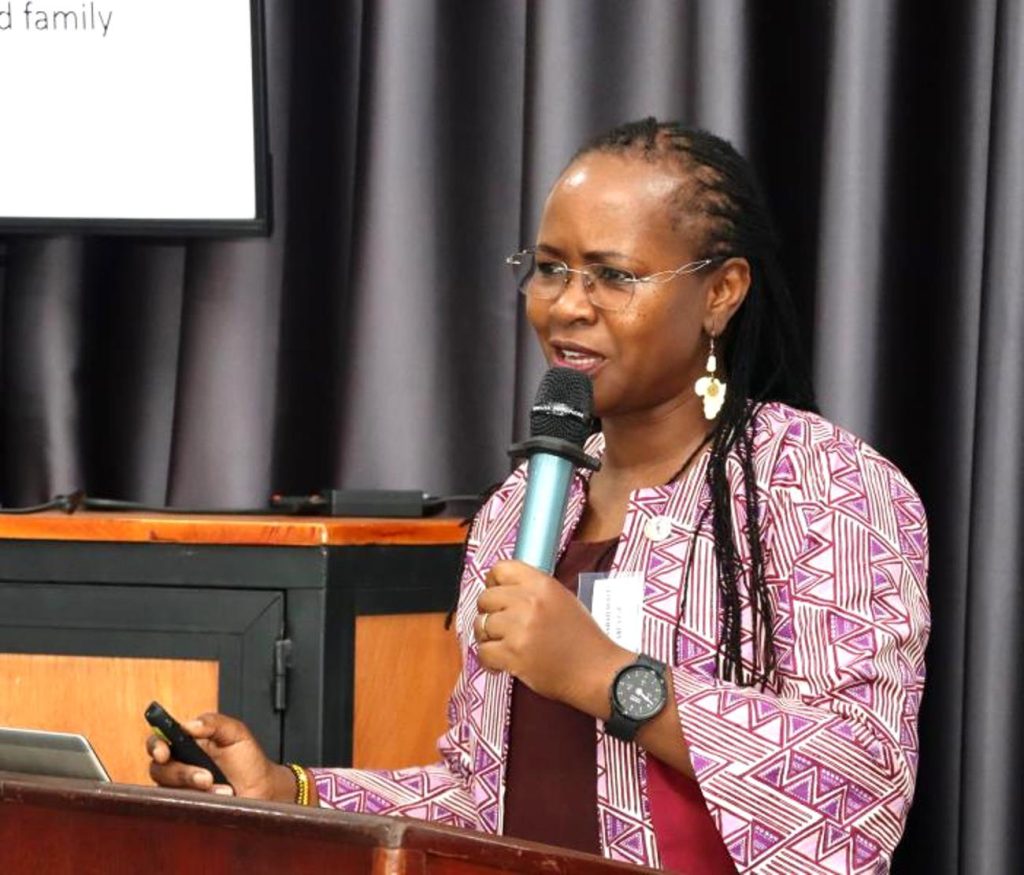
The Senior and Early Career researchers presented their research findings to obtain feedback from the policy makers and stakeholders in dialogue that was held at Fairway Hotel on 25th March 2024. The policy dialogue brought together participants from academia, government ministries, agencies, private sector and civil society organizations. These included, Ministry of Agriculture, Ministry of Gender, the media, Uganda Police, Uganda Prisons, Uganda Women Parliamentary Association, Makerere and Kyambogo University, Young Child Uganda, Uganda National Association of the deaf and Mothers Heart Uganda and Kampala City Capital Authority among others.
The function was officially opened by the Principal College of Humanities and Social Sciences represented by the Deputy Assoc. Prof. Eric Awich Ochen and closed by the Deputy Vice Chancellor in charge of Academic Affairs represented by the Academic Registrar Prof. Buyinza Mukadasi. The Director, Directorate of Graduate Research and Training Prof. Edward Bbaale also graced the occasion.
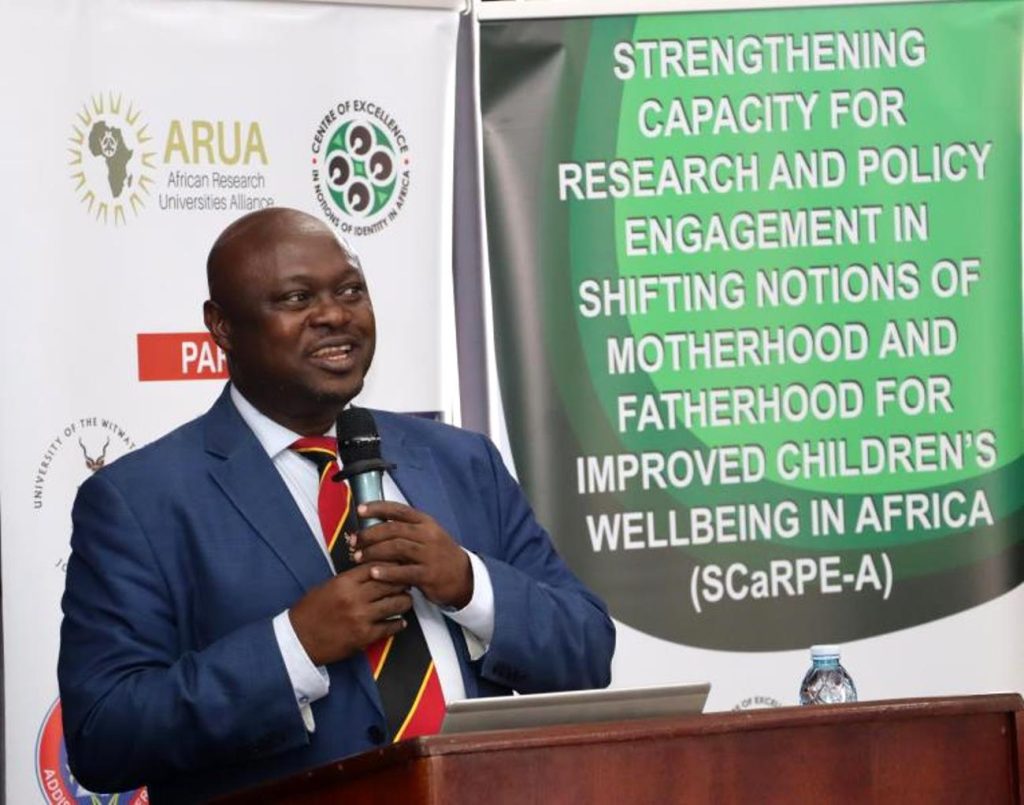
The workshop was characterized by speeches, presentation of research findings and panel discussions. Prof. Sarah Ssali presented on the systematic review on the changing notion of motherhood and fatherhood in Uganda; Dr. Zaid Sekito focused on the historicisation of the concept of motherhood in Buganda from 1840 – 2021; Mr. Howard Tugume analysed ways in which pigeon pea production shapes parenthood among climate smart agricultural farmers of Lira and Alebtong while Ms. Proscovia Nalwadda assessed the changing notion of motherhood and fatherhood amidst COVID 19 family-based challenges in Mukono district.
“From all the four research plus what we did in foregrounding of the systematic literature review by senior researchers shows that the family structure has been constantly changing initially impacted by colonialism but later impacted on by other things today such as CoVID 19, neoliberalism, job losses, HIV and wars and all these are changing how traditionally we conceptualized fathers and mothers”.
For example the role of providing is under threat, fathers move on, and abandon, and single mothers are increasing in numbers and they have to continue providing for these children and sometimes we see pressure manifesting as street children but also consequently creates a scenario where children who never saw fathers in homes choosing singlehood, children who never saw fathers in their homes not knowing what to do when they impregnate girls, and just keep on the run”, Centre Director and Senior Researcher who is also Dean School of Women and Gender Studies Sarah Ssali explained.
Ssali said, the meeting was to share with policy makers, activists, civil society organizations and the press what researchers have discovered and implore them to consider these changes and findings in the work they do so as to have more responsive policies that put family and children in the center and support parents to do their work .
“The key point here is that family structures are changing. What sense do we make of it and how do we work and support what remains? The way forward is to have policies that support families because families will always continue to be with us but we need family friendly policies”. She stressed.
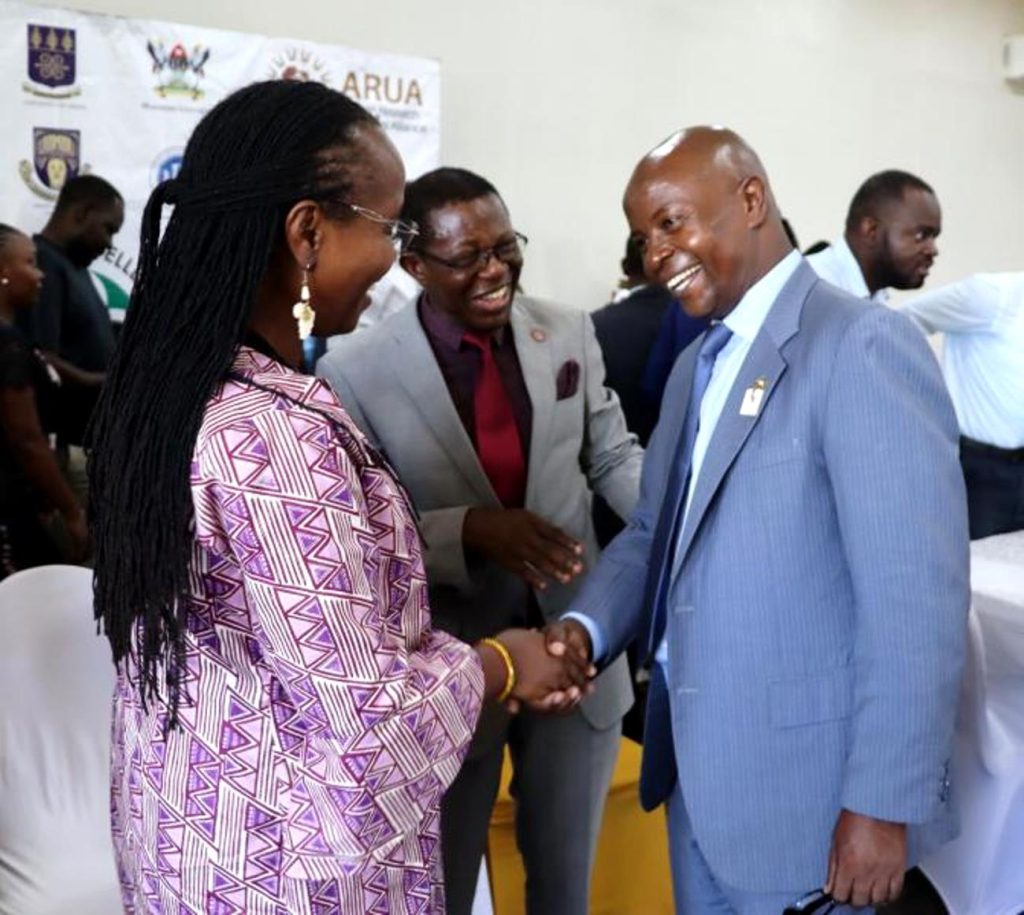
Single mothers on the rise
In his presentation, Dr. Zaid Sekito said, the increase in single mothers is a phenomenon that has been documented for long since the colonial era. In traditional family settings in Africa, Sekito said, single parents were rare or unheard of because families lived in a community and extended families. A semblance of single parenting was seen with colonization and movements and that time, they were talking about de facto single parents because although the fathers were there, they were never present. They would move to plantation farms and mines and would be away for even three years and the mothers who looked at the families became de facto.
With time, especially in Uganda, Dr. Sekito narrated, many wars of the 1970s took away most men and many women started looking after children as single mothers because fathers had died. Then, the phenomenon of single mothers reproduced itself, not just created by war but also created by economic conditions when fathers have to travel far to work but also some when they realize that they have fathered a child and they are not ready, they get on to the run.
“So single motherhood is increasing because, while fathers can walk away, mothers are stuck with the children. So economic changes, wars have been some of the primary drivers.
But also now, we are beginning to see a phenomenon where also mothers walk away. Children are being abandoned at the garbage sites and streets and sometimes mothers go to work and live children with house helps or grandparents. Sometimes both parents go away or die and children have to look after themselves”. Sekito observed.
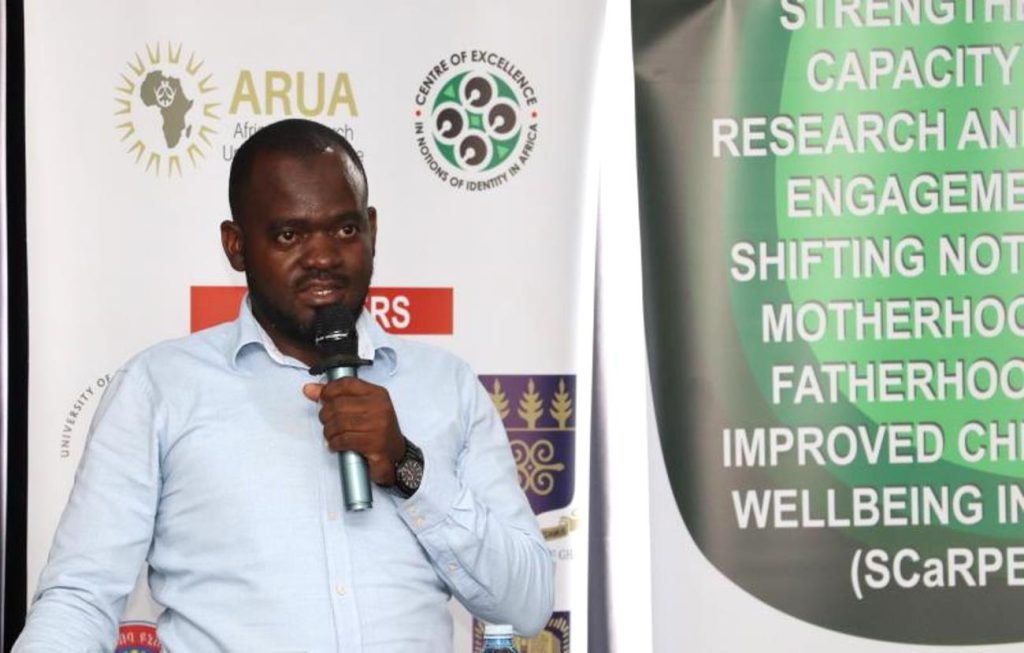
Sekito also reported that many of the Ugandan families that are not earning much are under stress and as they try to cope with long distance work, the children are left behind.
“It is important that concerned authorities, probation and welfare office, ministry of Gender, Uganda Government come in to support families so that they are held together. They can also explore other forms of families such as adoptive parenting, foster parenting but whether people foster or adopt, or whether children are in extended families, families need support. Most families are not rich and are coping with a lot of pressure as we transition from the rural peasant agrarian families into the modern capitalistic families”. Dr. Sekito recommended.
Dr. Sekito’s research examined the meaning and implication behind the concept of motherhood from 1840 – 2021, when Buganda became into contact with external forces and also covering the precolonial space. He said, the concept motherhood, in the 1840s conceived mothers as being caretakers and everything in the social aspect and that time, even fathers had great responsibility ranging from moral upbringing of children and bread winners.
Men, according to Dr. Sekito have changed and ceased being men, when they got exposed to western capitalist forces, when the labour market became monetized and that is when fathers became more inclined to bread winning activities and the rest of the roles relegated to the mothers. Children henceforth, became inclined to their mothers so much that the attachment had to continue and as the neoliberal era set in, most fathers focused on the bread winning role but even some lost and abandoned the roles altogether.
“As we speak now, the number of single mothers is on the increase. According to the UBOS 2024 report, the number has increased from 20 -30%. This is for women having children but are single mothers. This statistics have a lot of implications on the role that culture plays”. Sekito said.
Cultures according to Sekito have been responsible for the increasing number of single motherhood as they promote habits such as overdrinking.
“A parent who goes out to drink a lot has nothing to do with valuing what parenting is, so that moral fabric is always lost. We are seeing cultures permitting polygamy without due consideration of the man’s ability to take care of the wives and children” Sekito stated.
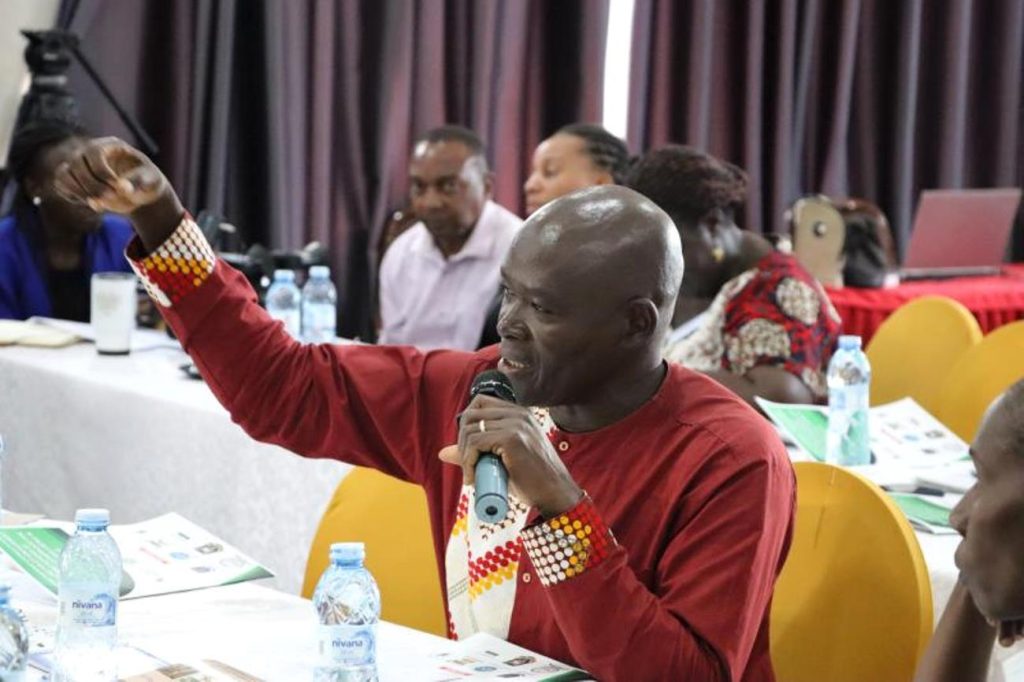
The other issue according to Dr. Sekito is the lack of moral guidance and cognitive behavioral direction where men abandon their families because their women have produced girls or boys only or a child with disability. In this case, as a man moves out, a woman is stuck to single-handedly take care of children.
Consequently Sekito said, women have lost trust in men and decided to concentrate on bringing up their children and are labelled all sorts of names. Dr. Sekito reported that Since 1980s there has been that aspect of marginalization and social exclusion of women by men and sometimes taking advantage of those with disabilities.
“Because many men are lacking guidance which is embed within culture, a Muganda man will describe a woman who give birth to a lame child as woman with bad omen which is rooted in culture and socially constructed. This is carried on by boys who marry and this culture does not defend the women using prevailing circumstances or biological science.
There are instances where men take advantage of the physically impaired girls and women, use them and abandon them. There are disabled women having four children but you can hardly point out their fathers, but, high class citizens are prime suspected fathers” said Sekito
Sekito also associated the rising number of single mothers to the western ideals. The don cited a common practice and space of having sex for pleasure, the old and rich men having women but not wives and single motherhood by choice.
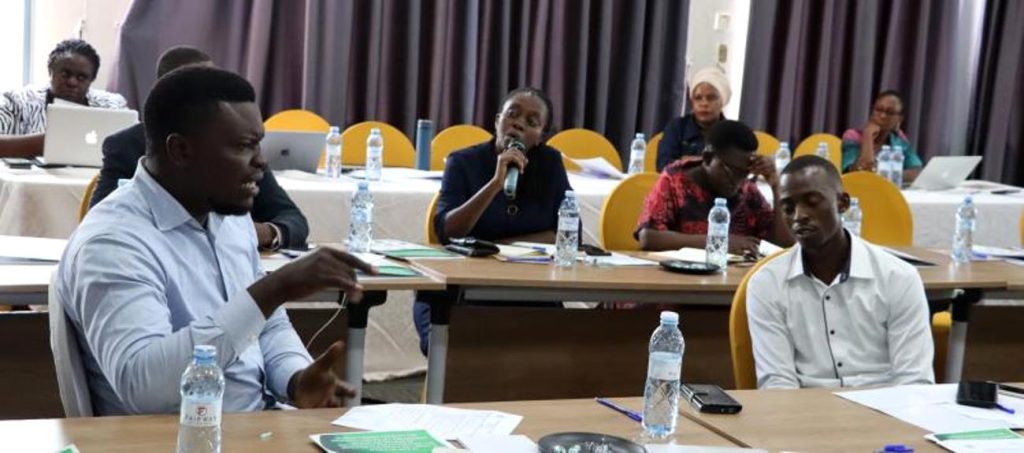
The study also associated the rising number of single mothers to the rising education, political, social and economic statuses. A significant number of single mothers with low educational levels reported that their husbands had abandoned then in favor of highly educated partners to march their social, political and economic status. These women according to Dr. Sekito begun humbly with their men when they had nothing, but when they advanced, they dropped them on grounds that they are a shame in public.
Dr. Sekito proposed a form of cultural re-orientation to challenge both indigenous and western cultures to improve parenting; formulating policies that support cognitive behavioral therapies where people can be spoken to, and, revising some of the colonial legislation like one on alcohol consumption.
Stakeholders ask Makerere to introduce a Graduate program on parenting
During the panel discussion, stakeholders decried the capacity gaps in dealing with issues of parenting in the different public, private and civil society organization asking Makerere University to leverage on the partnership and research to build human capacity to address the gaps.
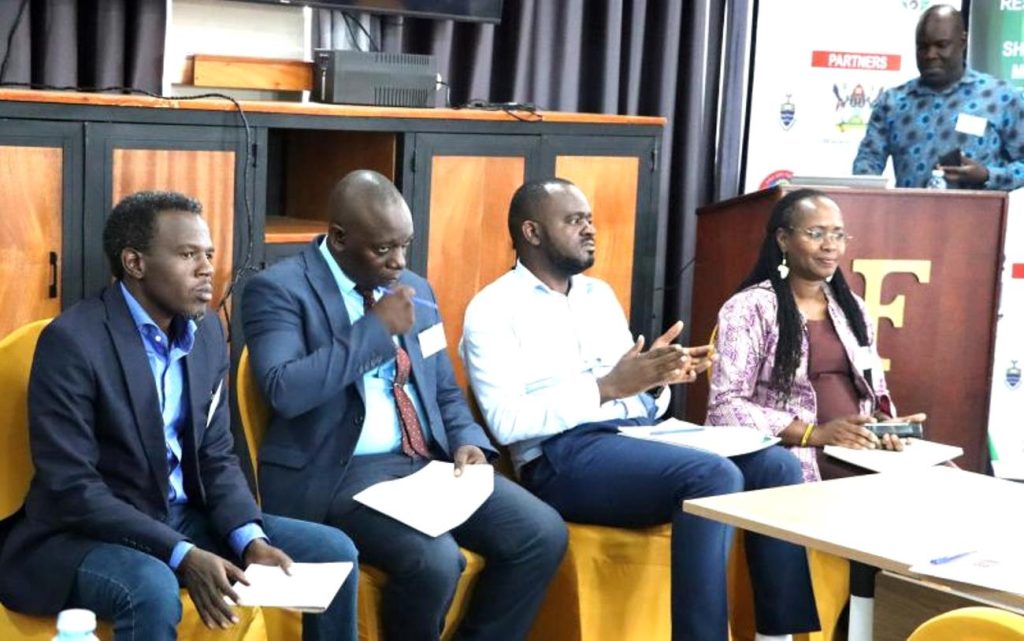
The Director, Directorate of Graduate Research and Training at Makerere University Prof. Edward Bbaale welcomed the move and the possibility to develop an interdisciplinary graduate program in the School of Women and Gender Studies to address the capacity gaps.
Prof. Bbaale expressed gratitude to ARUA center for the work well done saying, its rightly within the strategic direction and priorities of the university. As a Directorate, Bbaale said, it gives him a lot of hope that the university has units building the research led aspect .
Bbaale said, one way of building a research mantra is through building partnerships and collaborations as well as internationalization, and, ARUA Center comes in handy to advance the agenda adding that collaborations that have been built in this endeavor were heartwarming.
“I enjoyed the panel discussion seeing the academia, the researchers and the policy makers come in with different perspectives; and there has been a point of convergence on a number of issues and one of it, is to deepen research on un-answered questions with evidence” said Bbaale
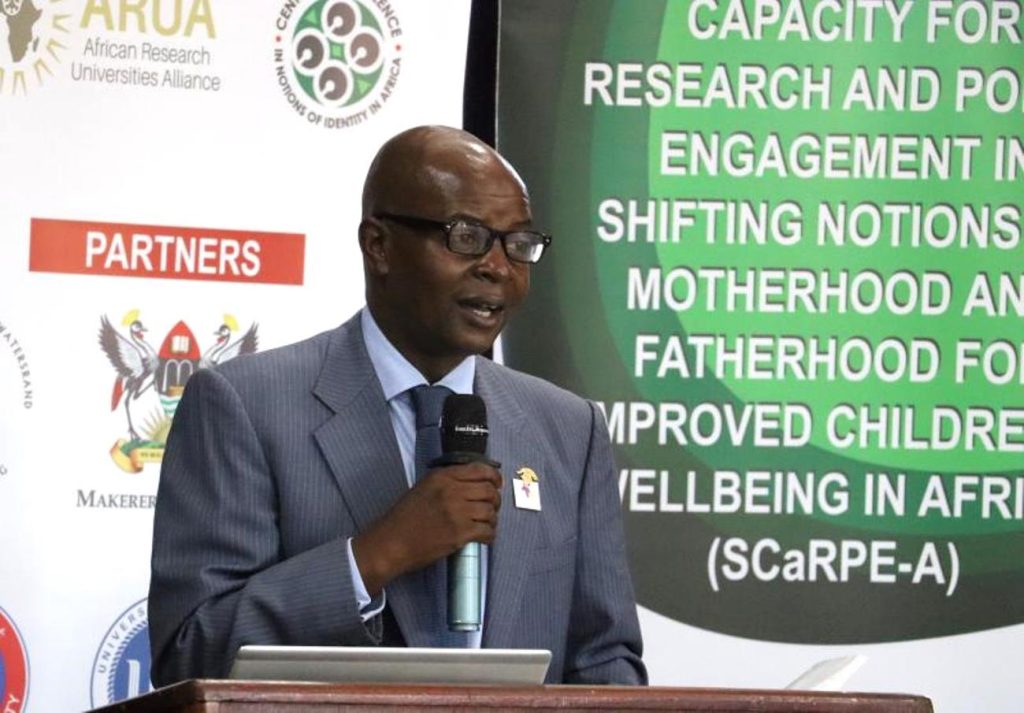
Addressing issues of unpaid care economy can have positive implications
On a personal note, Prof. Bbaale expressed the need to reignite the debate on unpaid care economy. Unpaid economy, he said, refers to the work done within the household, community that is not recognized or renumerated such as child care, elder care and domestic chores. This work is often performed by family members particularly women without financial compensation.
From the gender perspective Bbaale said, there is much more that academia and policy makers and stakeholders can do to recognize and compensate caring hands that make what people are.
“In terms of parenting, unpaid economy can significantly impact parents particularly mothers as they bear the primary care responsibility and domestic duties. This can lead to dire consequences such as limited career opportunities and increased stress affecting the overall wellbeing and ability to participate fully in the work force”, said Bbaale
From the economic stand point , the unpaid care economy according to the professor has both direct and indirect costs on the Gross National Product. Directly, he said, it contributes to the economy by enabling other members to participate in the paid work or other productive work.
But indirectly, Bbaale said, the lack of recognition and support for unpaid care work leads to economic loss by perpetrating economic inequalities, limiting women participation in the labor force and constraining their overall productivity.
Basing on what had taken place in the discourse, Bbaale expressed optimism of a bright future in coming up with an interdisciplinary program and research that can address many of the issues raised.
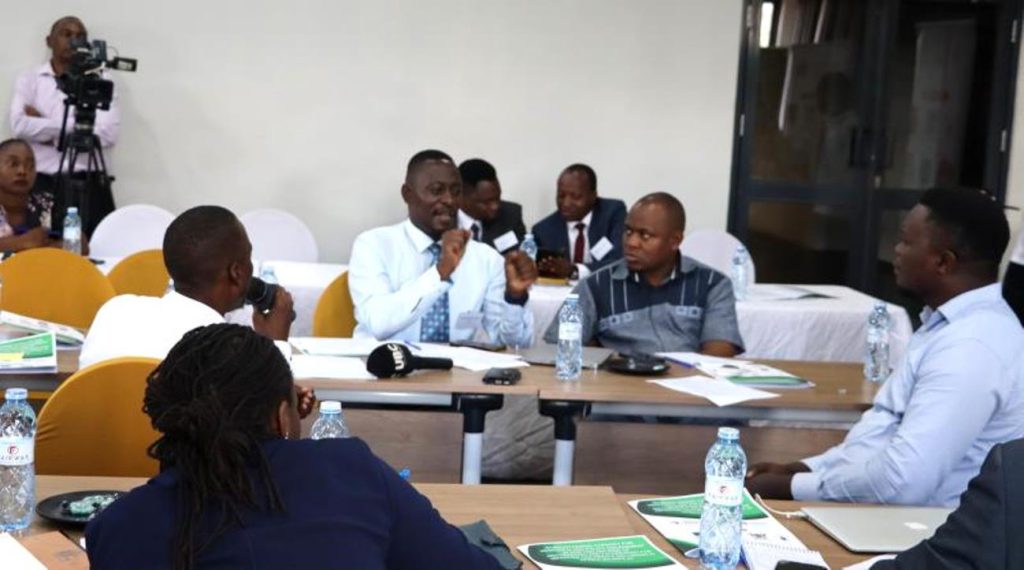
ARUA taking the university to the community- Prof. Buyinza Mukadasi
While closing the workshop, the Academic Registrar Makerere University Prof. Makadasi Buyinza commended the centre leadership and team for building strategic partnerships and taking the university to the communities.
“I feel too good to see that Makerere has come of age, we had the police officers, listened to submissions in a low tone to influence policy. I listened to the Principal Agricultural Officer, and it means that this has been a historic event at least in our lifetime as a university”, Said Buyinza.
He appreciated Prof Sarah Ssali for the initiative to write the grant winning proposal that brought resources helping to engage and meet partners in the business and community service.
He commended the Centre for strengthening capacity on active research and policy engagement in notions of identity saying, the stakeholders have been able to see how the notion and narrative of fatherhood and motherhood is changing and the need to strategize how to improve children’s’ wellbeing through research.
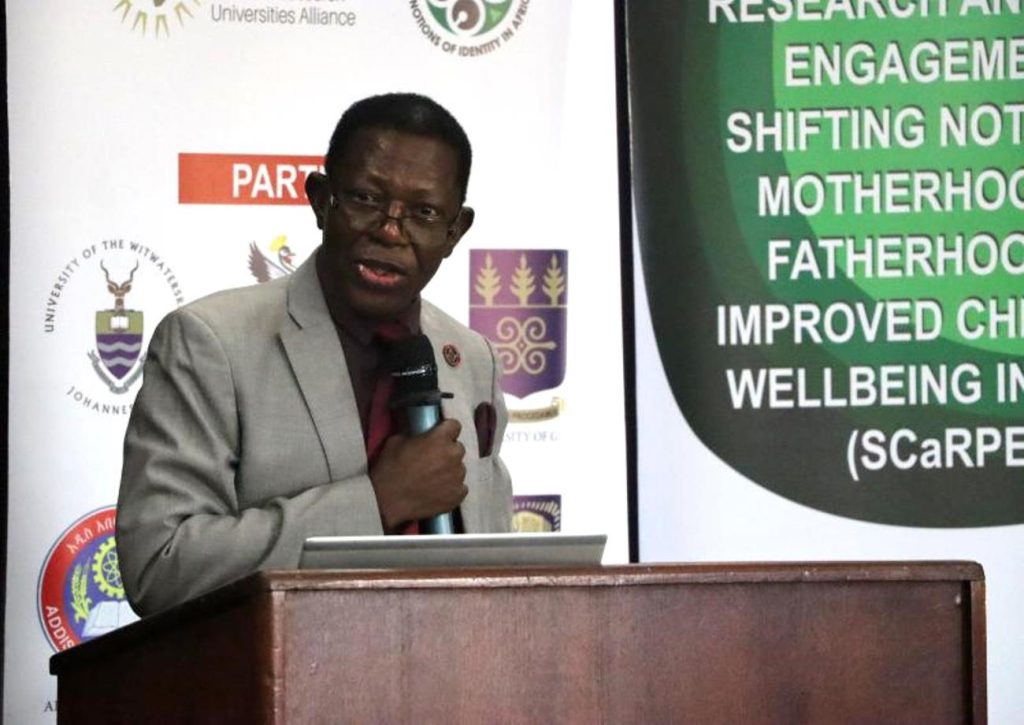
Buyinza implored the center to deepen the partnership and build the forum of exchange so that periodically, they come together for updates on emerging issues on parenting. He said, a forum like this, helps coordinate and get feedback on a number of policies.
“There was a discussion about curricular. Time is now. Makerere is looking for innovative ways of transforming society. If we can do that through curricular please present to us, we shall support you in Senate”, Buyinza pledged to support implementation of a new program in parenting.
On behalf of the university, Prof. Byinza expressed commitment to conduct research and have the evidence-based policy.
Participants speak out
A representative from the Ministry of Agriculture, Animal Industry and Fisheries Eunice Alloo expressed the need to ensure that interventions go beyond gender issues to address issues of parenting, integrate issues of motherhood and fatherhood to improve the welfare of children.
“In my department and division of home economics that deals with family life, we need to go further and introduce issues of motherhood and fatherhood in our home economics training and welfare” Alloo said.
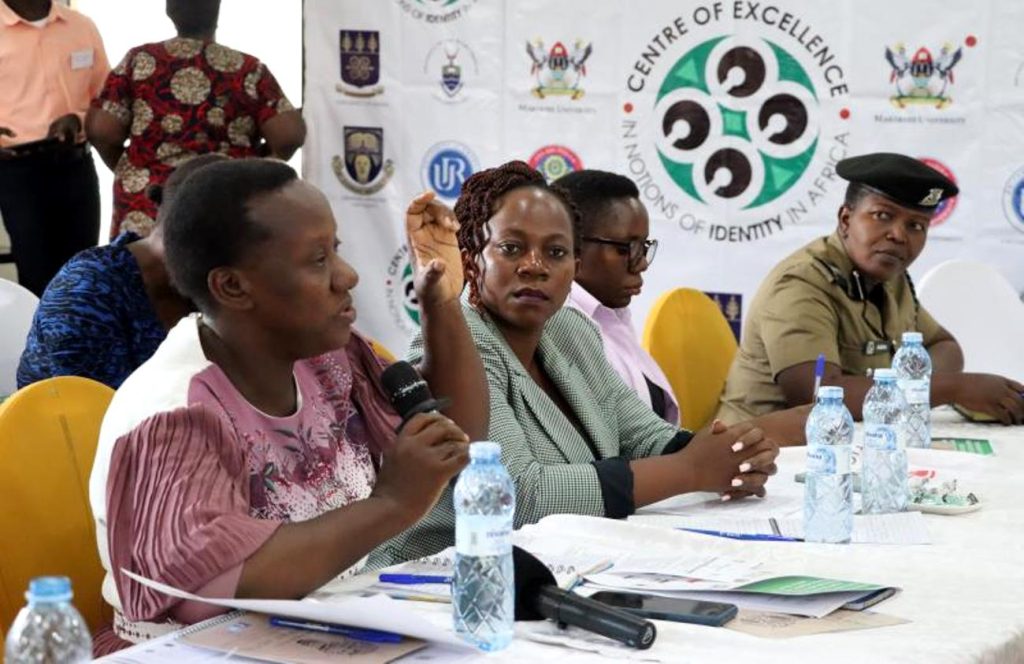
Besides handling people with disabilities, Ester Adeke from the Child and Family Protection Unit in the Uganda Police Force appreciated researchers for unearthing issues on parenting saying, it creates a basis and work for Uganda police.
“The insight given brings forth the need for us to do more of the proactive positive parenting especially for mothers and fathers to provide safer solutions to manage the hate or love situations; to build self esteem in the mothers and fathers; and transfer to the child, then responsible parenting and accountability for each as a child and parent. Let us appreciate co-parenting not existing in marriage but core parenting is your mandate and role even when the marriage has failed to work”, Adeke said
The Principal Social Development Officer Ministry of Gender and Social Development Lucy Otto said, besides advocating for evidence policy making, there is need to work in partnership to agree on the research agenda.
“Let three core institutions namely Africhild, Makerere University Child development center and ARUA sit together and agree on the research agenda to fill identified gaps, equip parents with necessary information and support to step up parenting and reduce gender based violence”. Said Otto.
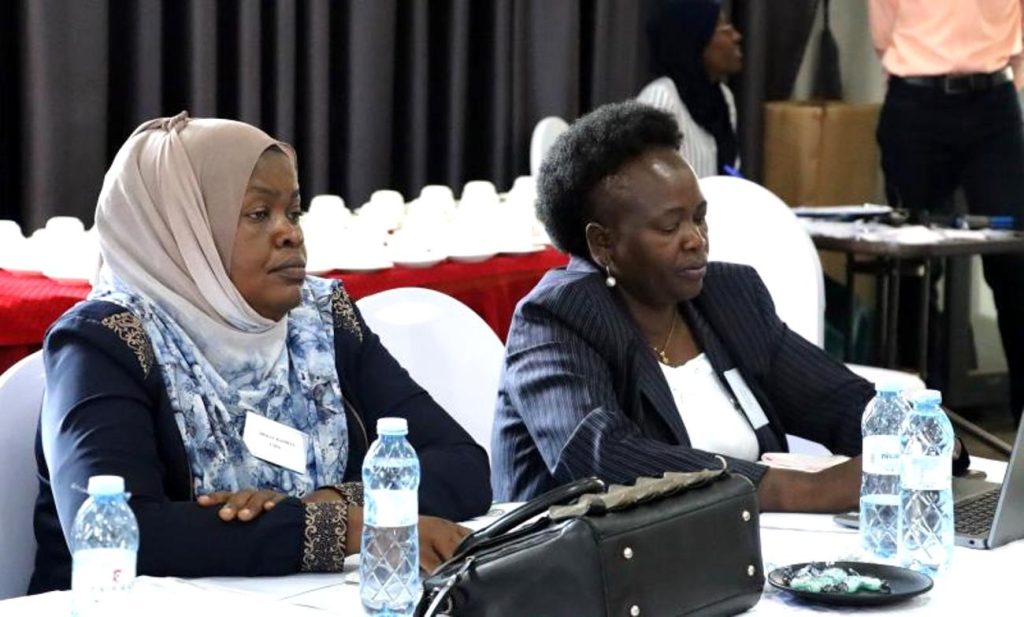
Appreciating the role of religious leaders in building families through marriage ceremonies and counselling, the representative from the Uganda Muslim Supreme Council asked Makerere to continue inviting religious leader in such dialogues.
She expressed the need for researchers and policy makers to streamline data from of all religious sects. She said, Islam teaching preaches care of children but there is need for mindset change program on polygamy, regulate and set the minimum standards for men to marry many wives.
“… the Muslim community may you please demand the Uganda Muslim Supreme Council to regulate polygamy because in my office these are common cases. Cases of child neglect and child abuse come due to polygamy. You can suggest that the minimum standard of a man getting another wife, is the status of the existing wife. Is she having the basics such as shelter, education and food so that people do not do it un-quranic way because it is an attack on the institution. It is alarming having irresponsible fathers just marrying and producing children for the community to suffer…” she implored the Moslem community.
You may like
-


Makerere Launches Scholarly Guide, Calls for Increased Research, Publication and Innovation in Africa
-
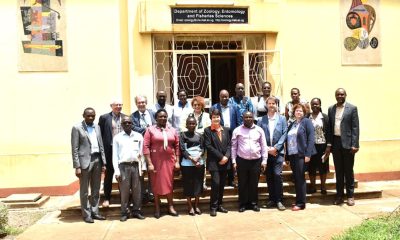

BOKU University Charts New Collaboration Strategies with Mak’s Department of Zoology, Entomology & Fisheries Sciences
-


When Birth Becomes the Most Dangerous Moment, Wanduru & the Work of Making Labour Safer
-
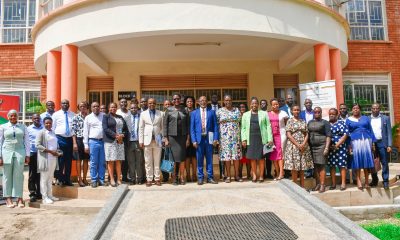

VC Opens Training for MoKCC Officials on Safeguards in Procurement
-
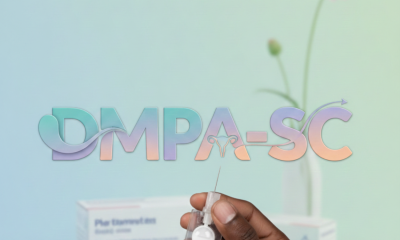

Study Alert: Power in Her Hands; Why Self-Injectable Contraception May Be a Game Changer for Women’s Agency in Uganda
-
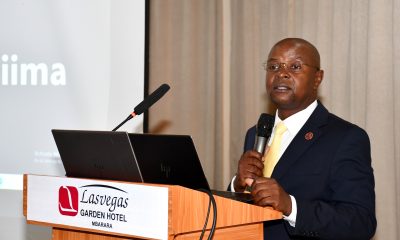

Building Skills for Better Public Investments: PIM Centre Trains Public Sector Economists
Humanities & Social Sciences
Dr. Pamela Khanakwa Honored for Steering Record 18 PhD Candidates for the Mak 2026 Graduation
Published
3 weeks agoon
January 23, 2026By
Jane Anyango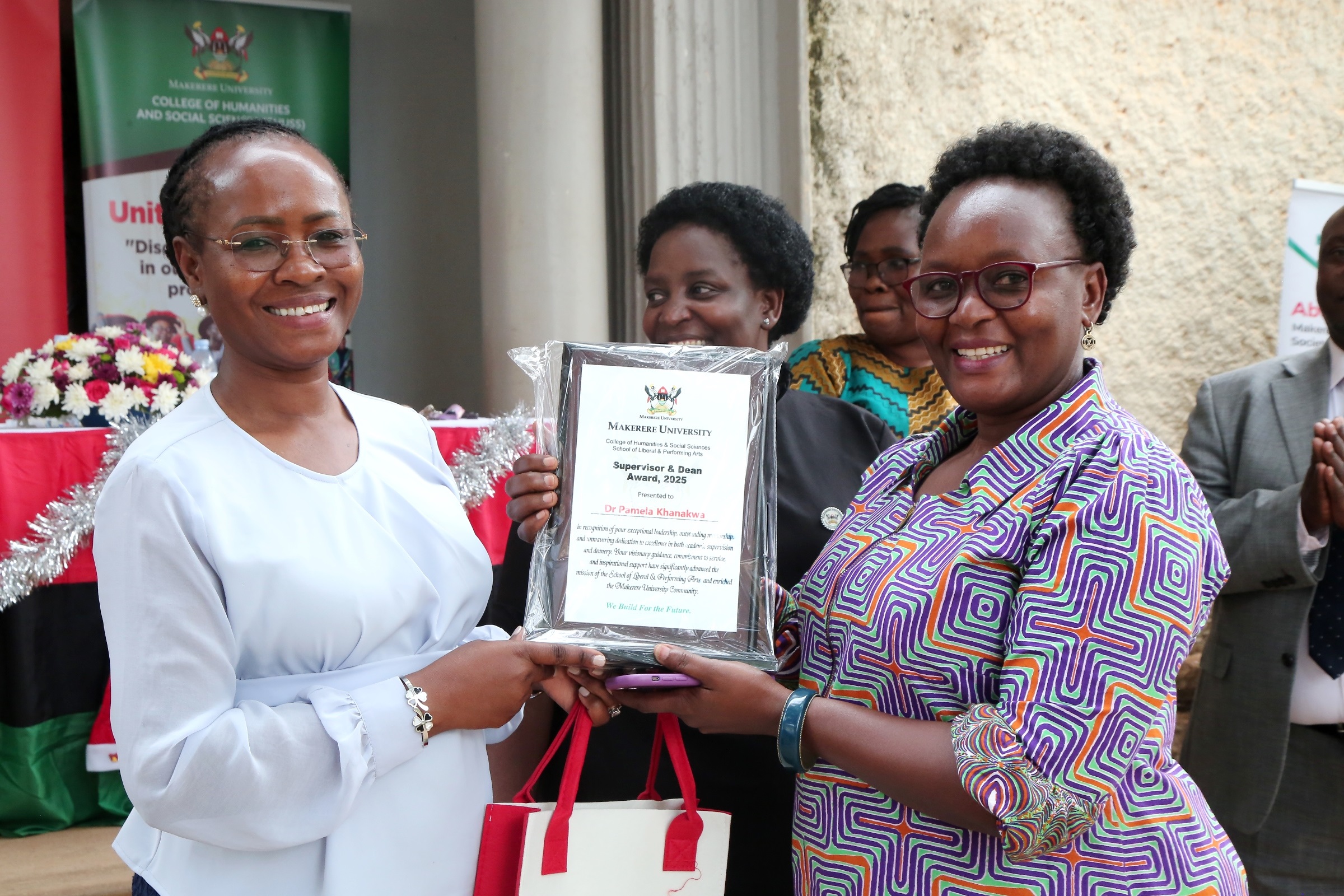
Six personally supervised, three completed in record time, as School of Liberal and Performing Arts sets a historic milestone. Dr. Pamela Khanakwa got the Award as Best PhD Supervisor and Dean
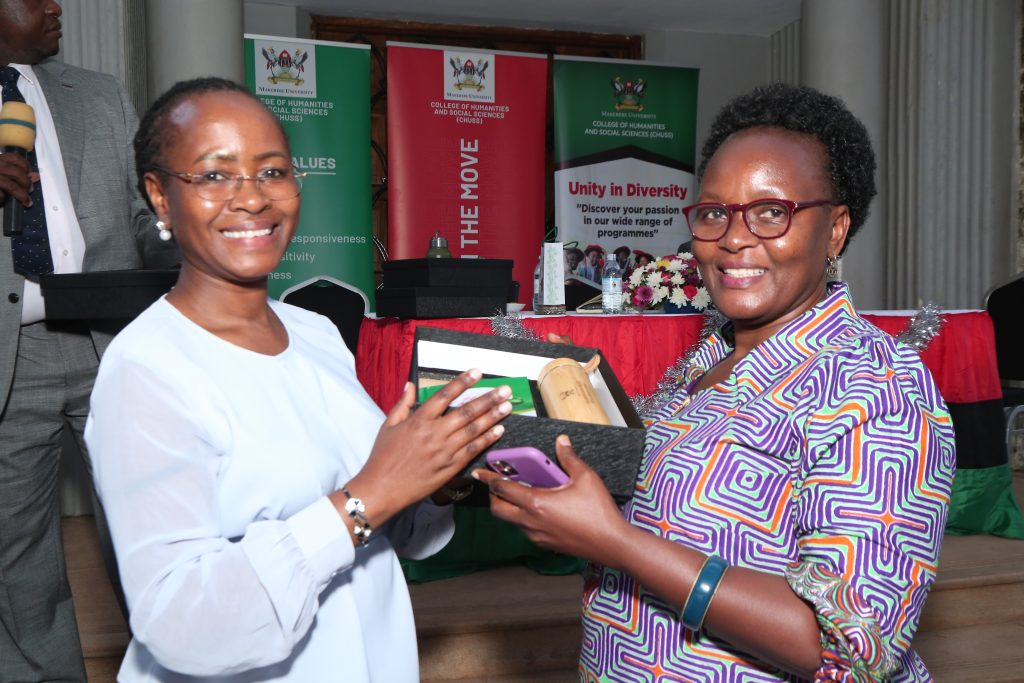
A Historic Academic Milestone for SLPA
The College of Humanities and Social Sciences (CHUSS) recognised the Dean of the School of Liberal and Performing Arts (SLPA), Dr. Pamela Khanakwa, for outstanding academic leadership that has seen the School field 18 PhD candidates for the next 2026 Makerere University Graduation Ceremony scheduled for 24th-27th February. Remarkably, six of these doctoral graduates were directly supervised by Dr. Khanakwa, with three completing within the official three-year timeframe, an exceptional achievement in graduate training. The recognition was announced during the CHUSS End-of-Year Get-Together, where staff applauded Dr. Khanakwa’s dedication, humility, and relentless commitment to postgraduate supervision and timely completion.
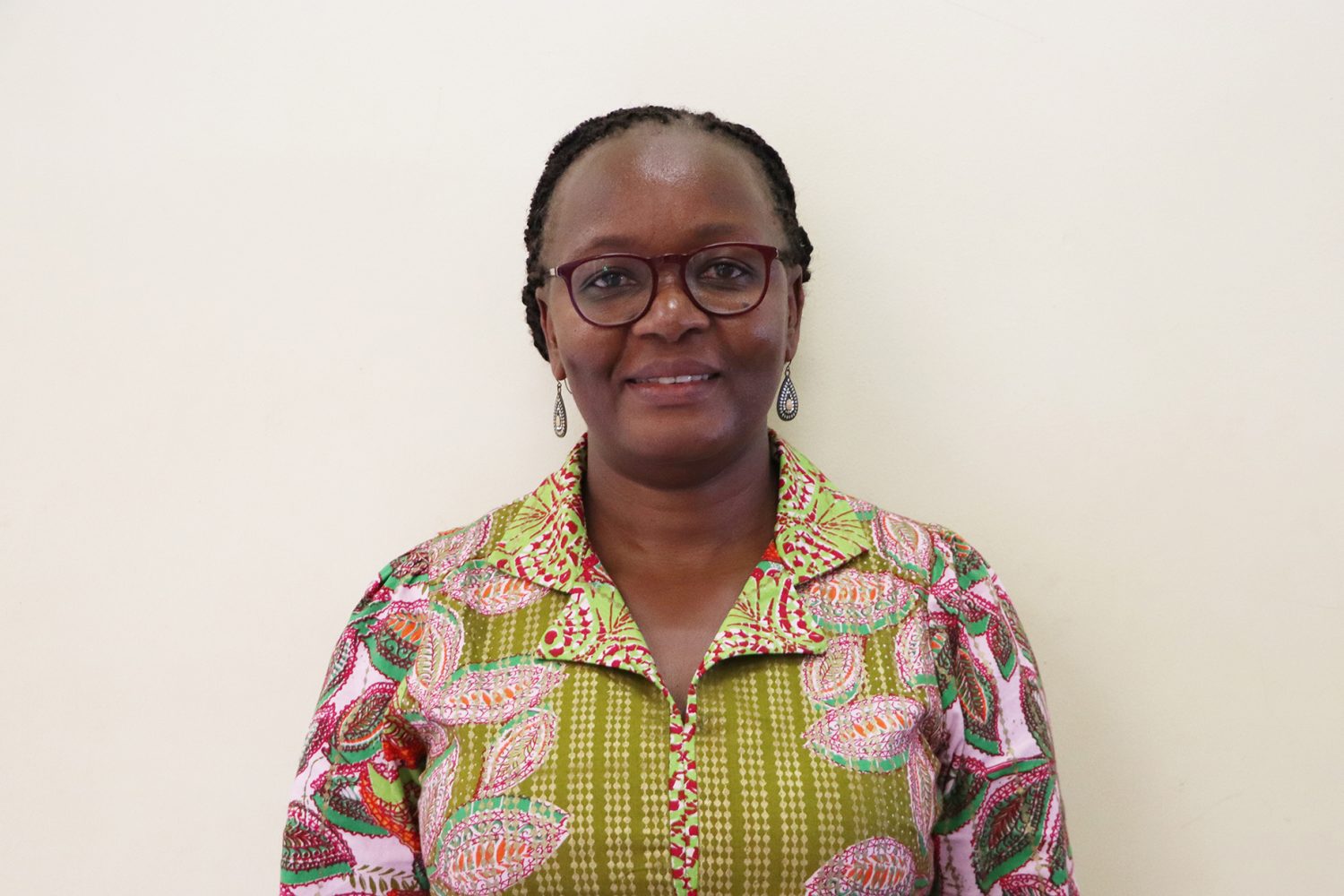
Message to Academic Staff
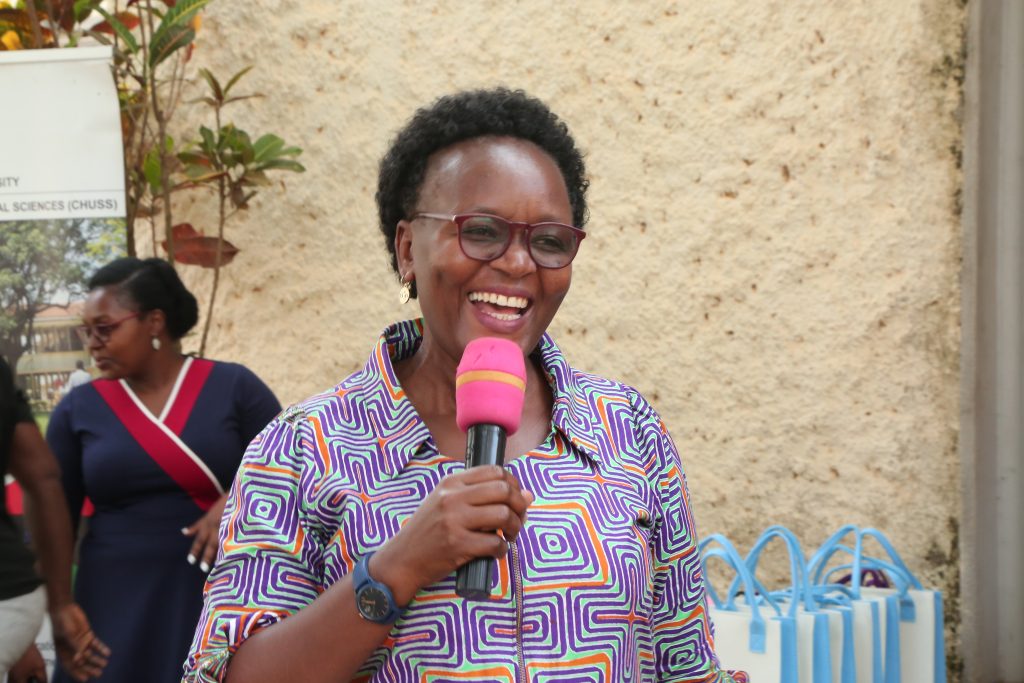
Q: What message do you have for your staff following this achievement?
Dr. Khanakwa:
First, I celebrate my staff and thank them for their dedication to supervision and student support. Academic work is demanding, and material rewards are often limited, but the true satisfaction comes from seeing students succeed.
I encourage my colleagues to remain committed. Yes, the workload is heavy, but many things are possible with dedication and teamwork. Let us continue working for the good of our students, our School, and Makerere University.
Leadership Rooted in Humility
Q: Many colleagues describe you as humble, down to earth, and hardworking. What shapes this character?
Dr. Khanakwa:
I think it is largely my upbringing. My mother was a primary school teacher from the 1950s until the mid-1980s. She worked extremely hard to raise us, combining teaching with farming to ensure we had school fees and basic needs. From her, I learned humility, discipline, and the value of hard work.
I also learned that leadership positions are temporary. You occupy them today, and tomorrow you move on. So humility is essential.
My graduate training also shaped me significantly. My PhD supervisor emphasized that graduate study is a full-time job and that results matter more than noise. Let people see your work through outcomes, not announcements.
Supervision as a Two-Way Commitment
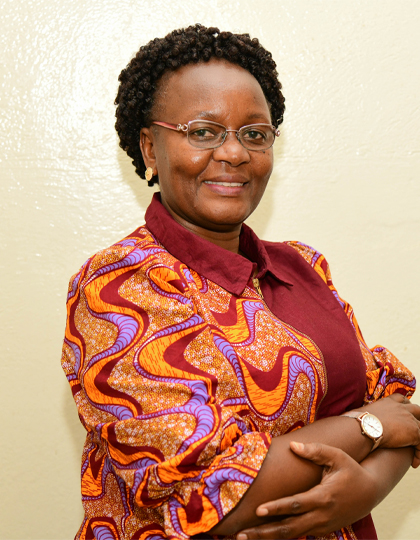
Q: How would you describe your supervision style?
Dr. Khanakwa:
I read my students’ work thoroughly, word by word. Sometimes my comments are tough, but they are honest. Supervision is a two-way commitment. I give feedback, but students must also respond and remain engaged. When that relationship works, progress happens.
Balancing Leadership, Scholarship, and Family
Q: How do you balance being a Dean, scholar, wife, mother, and daughter?
Dr. Khanakwa:
Honestly, I am not sure I balance perfectly. My mother lives far away in Bukwo, so visiting requires careful planning. My children grew up understanding the demands of academic life. I pursued my PhD in the United States and spent long periods away, but we adapted as a family.
Work has become part of my lifestyle. I use weekends to read dissertations, review manuscripts, and write. Sometimes my children ask if I ever sit without working, but this is the commitment I made. As we often say jokingly, “We humbly applied for the job, so let us do the job.”
Scholarship Beyond Supervision
Dr. Khanakwa is also an active scholar and editor. In the past year alone, she has:
- Edited scholarly volumes on archives, memory, method, and pedagogy
- Published a book with Routledge Companion
- Co-authored journal articles and book chapters with graduating students, including Priscah Asiimwe and Anatoli Lwasa Mpijja
“I feel an obligation to write with students,” she notes. “It takes time, energy, and commitment, but it is part of academic mentorship.”
Who Is Dr. Pamela Khanakwa?
Dr. Pamela Khanakwa is the Dean, School of Liberal and Performing Arts, College of Humanities and Social Sciences, Makerere University. She is a seasoned scholar, supervisor, administrator, and mentor whose leadership continues to redefine graduate training excellence. Details about Dr. Pamela Khanakwa can be accessed at: https://chuss.mak.ac.ug/en/personnel/pamela-khanakwa/
More details are available in her attached curriculum vitae.
The CHUSS End- Of-Year-Get-Together
On 12th December, 2025 the college leadership organised a get-together end of year gathering to take stock of the achievements, challenges and brainstorm together on how to move forward. The event was marked by entertainment, team building games, appreciation speeches, sharing a meal and a Christmas package for every staff
Retirees and staff recognised
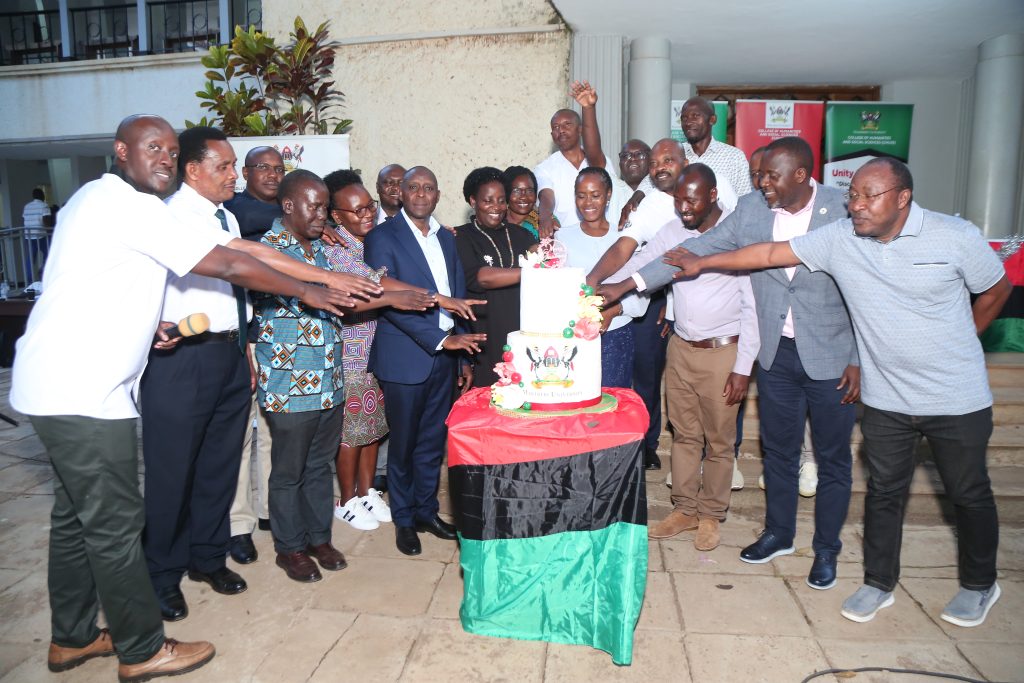
Five retired staff Dr. Micheal Wangotta Masakala, Dr. Anatole Kirigwajjo and Dr. Jackson Kizza Mukas (all from the School of Languages, Literature and Communication), Assoc. Prof. Florence Nansubuga (School of Psychology), Dr. Tusabe Gervase (School of Liberal and Perforing Arts) and Ms. Scovia Nganda Sekweyama (secretary from the School of Social Sciences) were recognised for their dedicated services to the university.
In addition to Dr. Pamela Khanakwa’s Award as Best PhD Supervisor and Dean, Ms. Birabwa Florence scooped the award of Best Registrar of the year. Birabwa is the registrar for the School of Liberal and Performing Arts.
Administrative and support staff including Ms. Mary Gyezaho and Annet Kashumbusha(both administrative secretaries in the Principals office), Farouq Lule (IT Officer), Godfrey Kakooza (cleaner), Charles Sebuguzi (driver) and Jane Anyango (Communications officer) were recognise with awards for outstanding service. Dr. Mohamed Mayanja Kajumba was from the School of Pyschology was recognised as the person with an outstanding talent in Handwriting.
The celebrations held in the Arts quadrangle were graced by the Vice Chancellor Academic Affairs Prof. Sarah Ssali and the Deputy Vice Chancellor in charge of Finance and Adminstration Prof. Ireeta Tumps.
Humanities & Social Sciences
Ugandan Journalists Trained on Peace and Gender-Sensitive Reporting Ahead of 2026 Elections
Published
1 month agoon
January 9, 2026By
Jane Anyango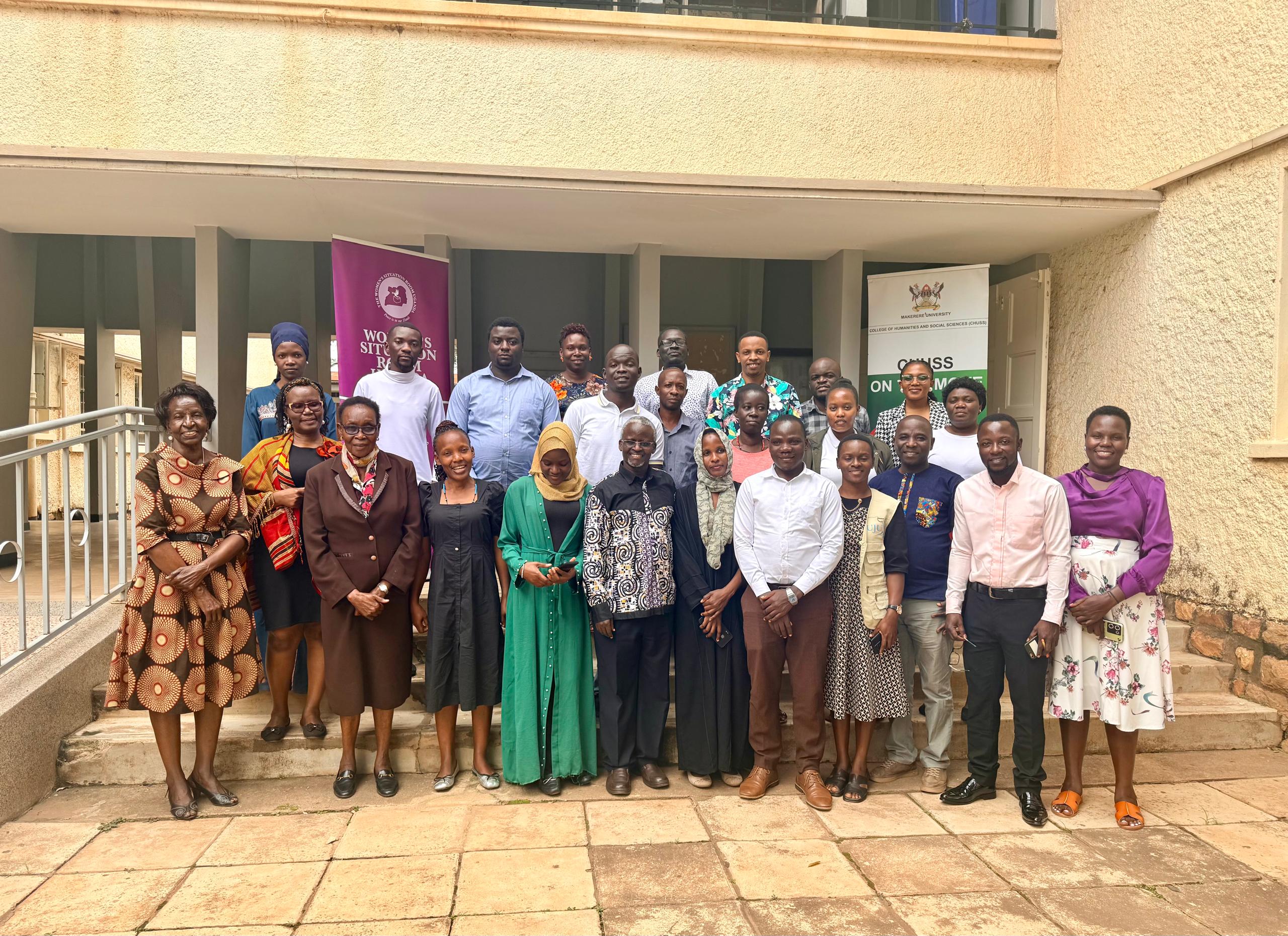
Kampala, Uganda – January 9, 2026
Ahead of the January 15 general elections, Ugandan journalists have undergone specialized training on peace and gender-sensitive reporting to ensure responsible media coverage during the election period. The two-day training, held from 8th to 9th January 2026 at Makerere University’s College of Humanities and Social Sciences Smart Room, was organized by the Women’s Situation Room (WSR) in partnership with various stakeholders and brought together journalists from across print, broadcast, and online platforms.
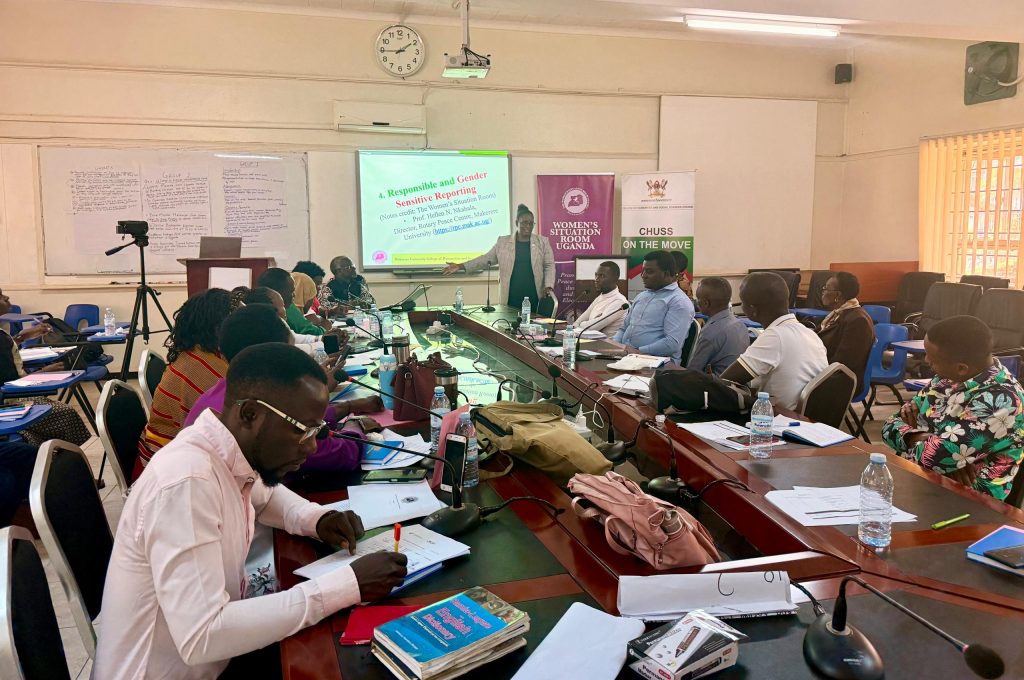
The main objective of the training was to strengthen the capacities of media in reporting and documenting electoral processes in a responsible and gender-sensitive manner. The specific objectives included: strengthening journalists’ skills to cover the 2026 elections in a fair, balanced, gender-sensitive, and non-violent partisan way; enhancing the role of media to enable citizens to be well-informed and actively participate in the election process; ensuring focused and balanced reporting on peace during and after elections; and strengthening partnerships between the WSR and media houses during the election period.
The training covered multiple critical modules. Day one focused on responsible conflict-sensitive reporting, emphasizing principles such as balance, impartiality, and accuracy. Participants explored the role of media as a relayer of the population’s voice, election monitor, catalyst for social cohesion and reconciliation, contributor to the accountability of political actors, and a platform for detecting and debunking digital media misinformation and hate speech.
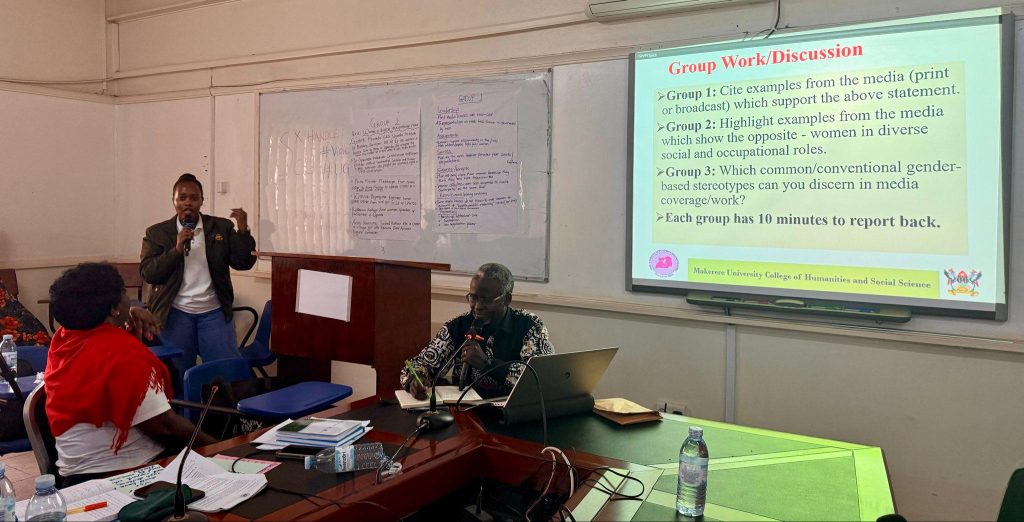
Day two addressed responsible and gender-sensitive reporting. Key aspects included the definition of gender-sensitive reporting, how to become a gender-sensitive reporter, critical elements in reporting with gender awareness, packaging gender-sensitive stories, and a checklist for detecting and avoiding gender-insensitive reporting.
Her Lordship, retired Judge Justice Mary Mayitum, emphasized the importance of peace as the foundation of development and democratic engagement. “Because we value peace more than anything. Without peace, really, you can do nothing. But where there is peace, you can have time to reflect, discuss with others, and join in meaningful dialogue,” she said. She warned that the country’s past conflicts, such as those in Gulu, underscored the necessity of maintaining national harmony.
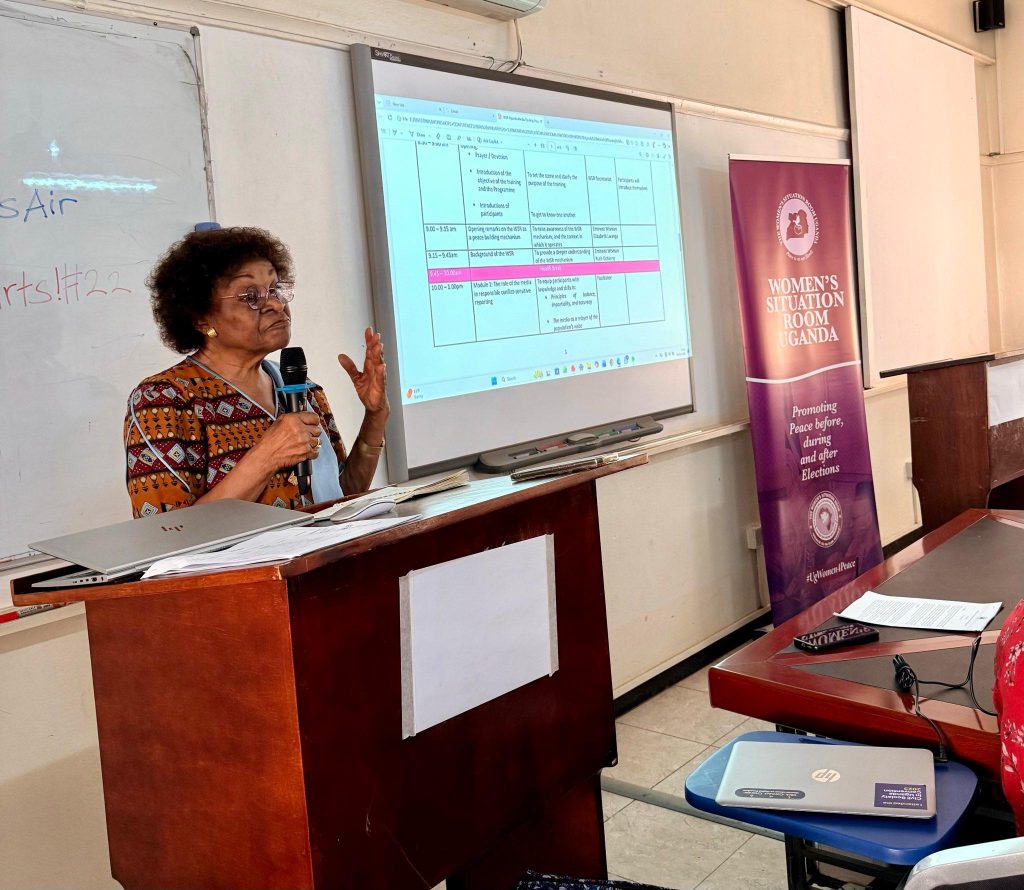
Justice Mayitum also urged other key election stakeholders to uphold peaceful conduct. “Being peaceful is the very heart of life. We have spoken to police, security personnel, political parties, and the Electoral Commission. We want politicians to have a code of conduct and to understand that it’s okay to think differently without fighting or hating one another,” she added.
Dr. William Tayebwa, lead facilitator and senior lecturer in the Department of Journalism and Communication at Makerere University, said, “This training is about conflict-sensitive reporting, peace journalism, and gender-sensitive reporting in the context of the elections. The emphasis was on giving female political candidates a voice while ensuring journalists report responsibly on election-related matters.”
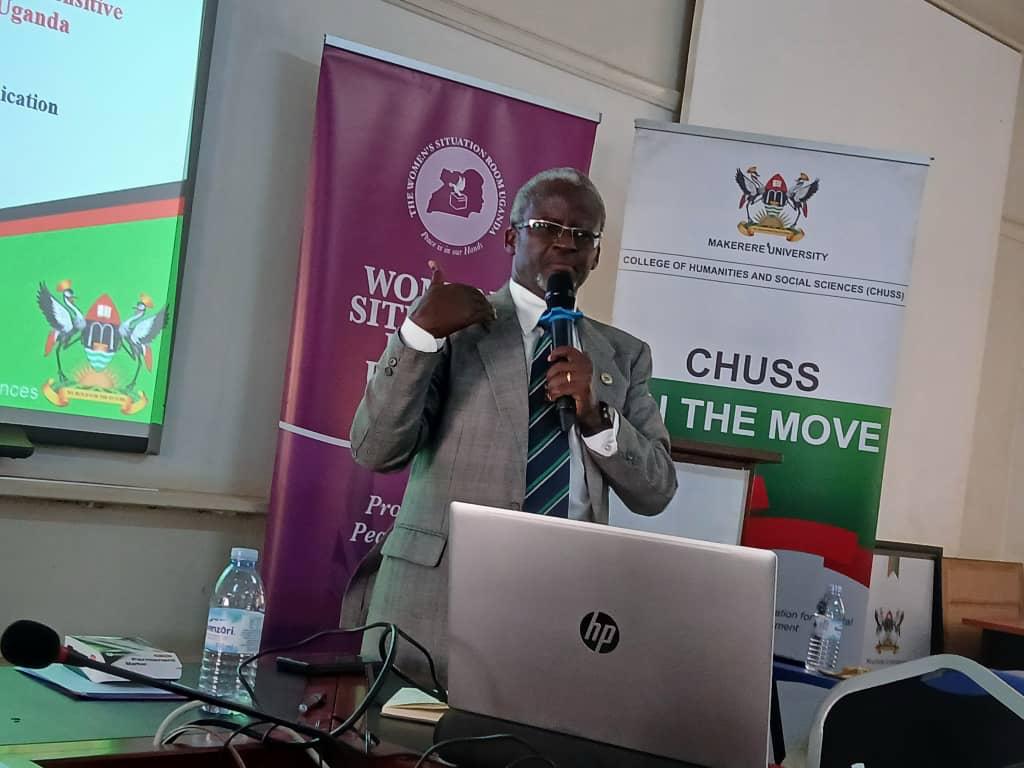
Participants described the training as timely and impactful. Tony Banizengabo of CBS Wakiso District said, “We’ve benefited a lot. We’ve been trained to write stories which bring peace, not conflict. Ahead of the elections, we are very ready to be part of peacemakers.”
Dorcas Kimono of UBC TV Kampala added, “It was so timely and rich. We learned how to report without promoting or fueling violence, giving voice to victims without angering them or encouraging violators. This is very vital, especially as we approach the 2026 elections.”
The training aims to equip media personnel with the knowledge and skills to uphold professional ethics while contributing to a peaceful, inclusive, and gender-sensitive electoral process.
Humanities & Social Sciences
CHUSS Invests Over UGX 100 Million in Interactive Smart Screens, Upgrades Teaching Infrastructure
Published
1 month agoon
January 9, 2026By
Jane Anyango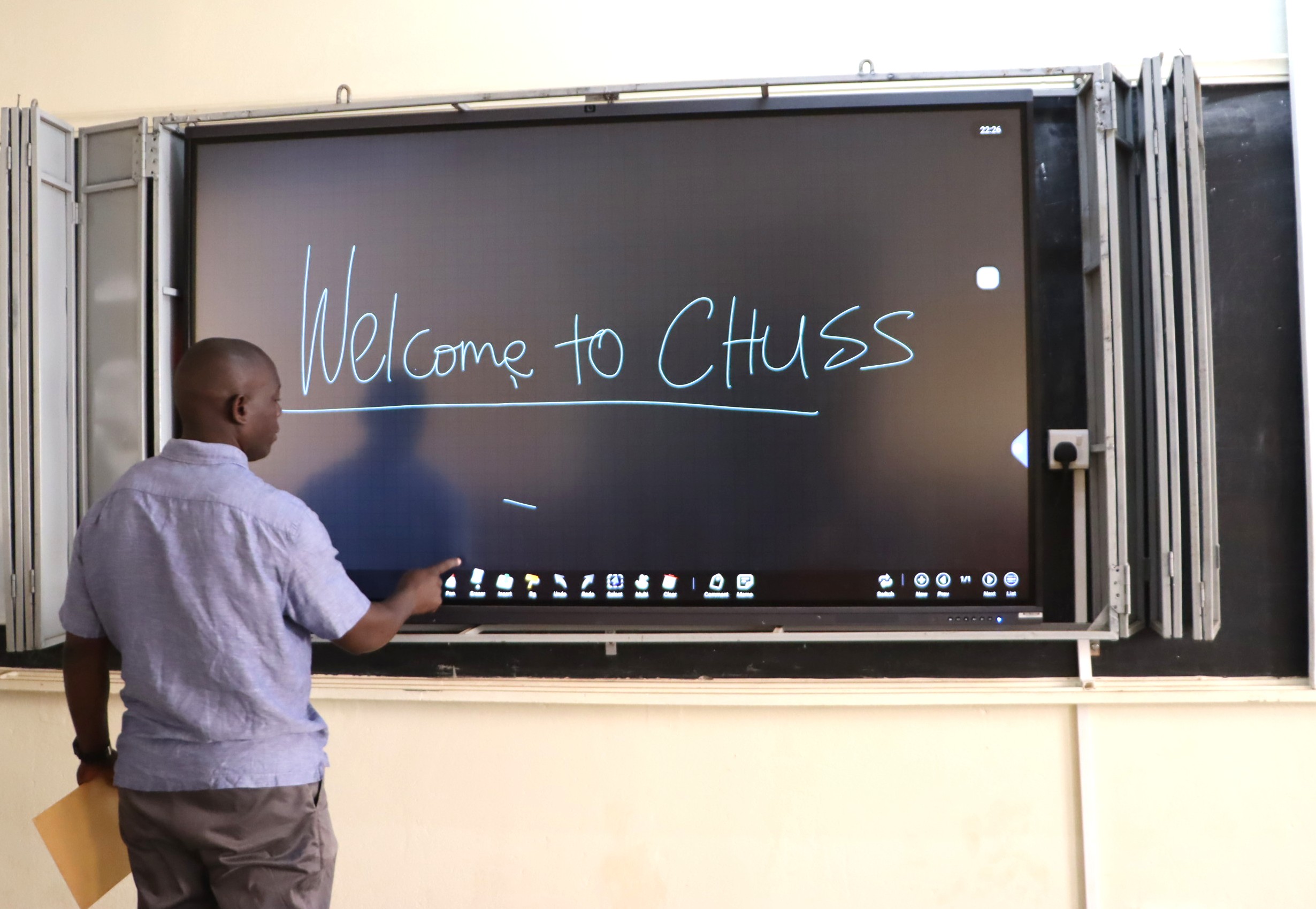
The College of Humanities and Social Sciences (CHUSS) has invested over UGX 100 million in the acquisition and installation of state-of-the-art interactive smart screens, marking a major step in strengthening digital teaching and learning at Makerere University.
Under the investment, 86-inch interactive 4K smart screens have been installed in major lecture rooms across the college’s schools, replacing traditional projectors and whiteboards. The upgrade is intended to modernise instructional delivery, enhance student engagement, and support blended and hybrid learning models.
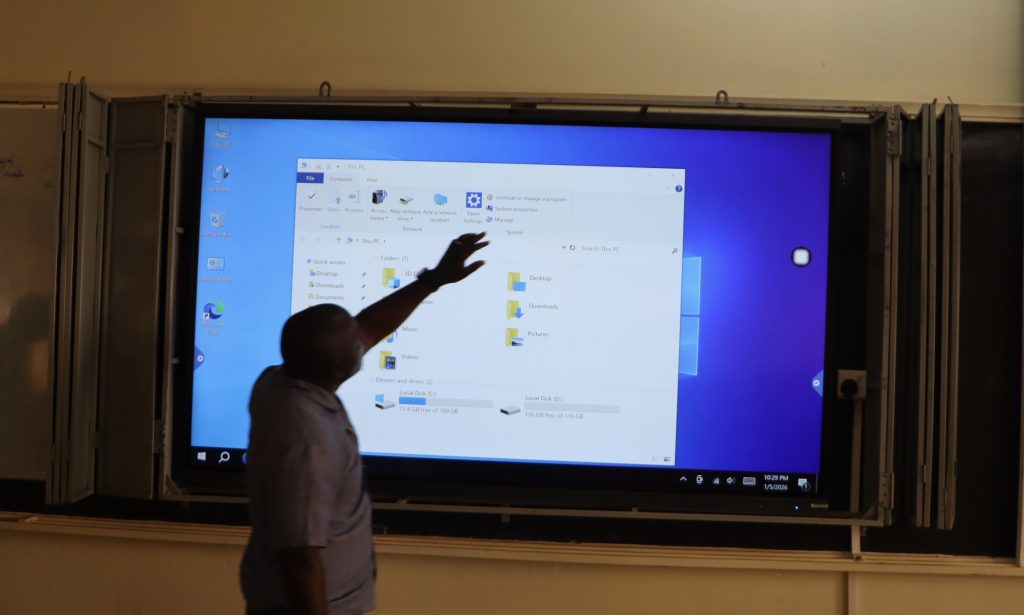
The touch-sensitive smart screens enable lecturers to write, draw, and annotate content directly on the display, while simultaneously integrating multimedia resources such as videos, presentations, and online materials. The screens support wireless screen casting from laptops, tablets, and smartphones, allowing for smooth, cable-free presentations and real-time sharing of students’ work during lectures and group discussions.
Designed to promote interactive and learner-centred pedagogy, the smart screens feature multi-touch capability that allows several users to interact with the board at the same time. This functionality supports collaborative learning, problem-solving exercises, and group presentations, making lessons more engaging and inclusive for students with diverse learning styles.
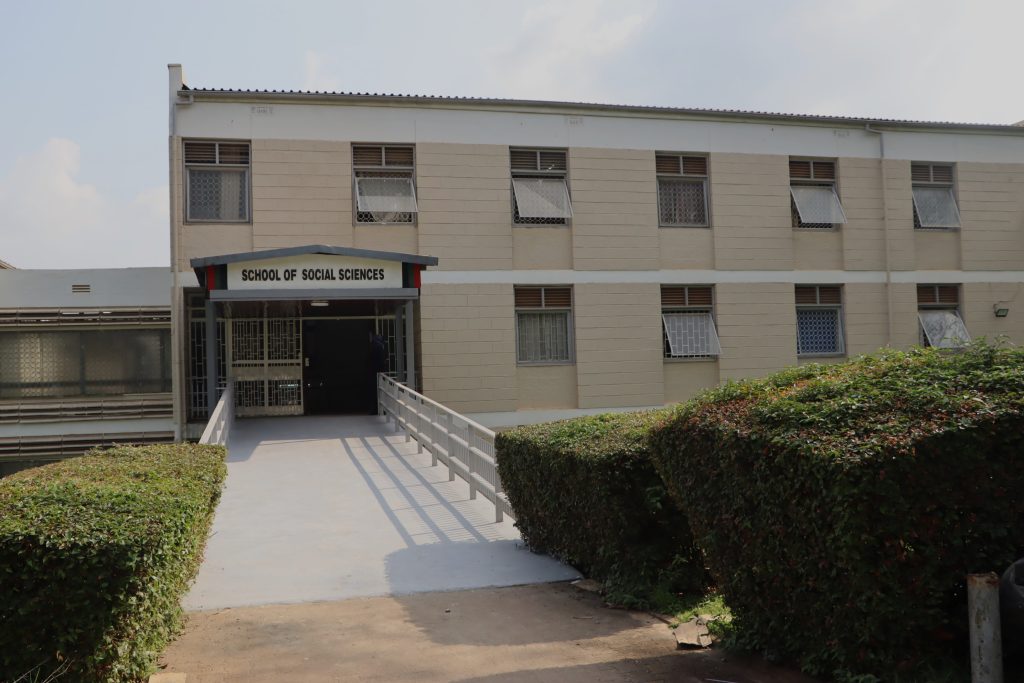
The boards are equipped with built-in cameras, microphones, and speakers, enabling seamless hybrid teaching through platforms such as Zoom, Microsoft Teams, and Google Meet. This allows lecturers to conduct virtual and physical classes simultaneously, record full lectures, and share them with students for later review, revision, or catch-up purposes.
Running on dual Android and Windows operating systems with full internet connectivity, the smart screens provide direct access to online academic resources, digital libraries, and learning management systems. Their AI-powered features further enhance lesson organisation, content clarity, and efficient, paper-free instruction, contributing to a more sustainable learning environment.
To ensure safety and prevent misuse, the smart screens are secured in fabricated metallic safety boxes installed in the lecture rooms.
Beyond digital infrastructure, CHUSS has also undertaken additional physical improvements. The Russian Lecture Room in the School of Languages, Literature and Communication has been furnished with new chairs, tables, and a projector screen, significantly enhancing its teaching environment.
The college has further improved staff working spaces, with the School of Psychology renovating office space and classrooms in Block A, while similar renovations have been carried out in the School of Social Sciences.
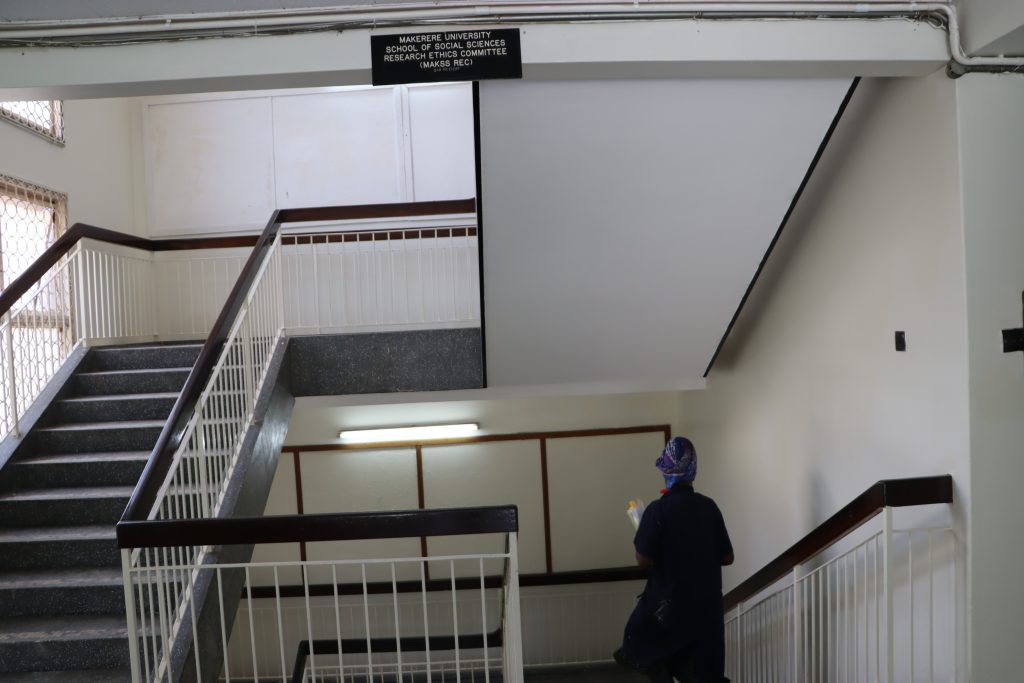
The infrastructural upgrades underscore CHUSS’ commitment to improving the quality of teaching, learning, and staff working conditions in line with Makerere University’s digital transformation agenda.
Trending
-

 General2 weeks ago
General2 weeks agoCall for Applications: Admission to Postgraduate Programmes 2026/2027
-

 Natural Sciences2 weeks ago
Natural Sciences2 weeks agoSimon Mungudit: Mak’s Best Performing Male Science Student & Rising Star in Petroleum Geoscience
-

 Agriculture & Environment1 week ago
Agriculture & Environment1 week agoFrom Adversity to Excellence: The Inspiring Journey of Makerere’s Best Science Student, Esther Ziribaggwa
-

 Health2 weeks ago
Health2 weeks agoCall For Applications: MakNCD Masters and PhD Training Opportunities
-

 General5 days ago
General5 days agoAptitude Exam (Paper 1) Results for the Mature Age Entry Scheme 2026/2027
